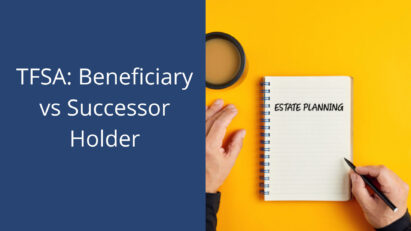In Canada, the Tax-Free Savings Account (TFSA) ranks as one of the most powerful tools for securing your financial future, particularly in retirement planning. However, many people overlook a significant advantage of the TFSA that can profoundly impact your estate planning strategy. Assets held within a TFSA can seamlessly pass on to your estate without incurring any tax liabilities. In this article, we delve into the tax implications of transferring your TFSA to a beneficiary versus designating a successor holder, helping you determine the best choice for your unique financial situation.
The Importance of Naming a Beneficiary
When you establish a TFSA, you must perform a crucial task—naming a beneficiary. This task serves several vital purposes. Firstly, it expedites the process of transferring your assets to your loved ones upon your passing. Equally important, it allows you to bypass the often hefty probate fees associated with transferring assets through the estate. Moreover, naming a beneficiary prevents your TFSA from becoming entangled in the lengthy estate settlement process, ensuring a smoother transition of your assets. An added advantage is the preservation of privacy. Estate information becomes public, exposing all assets passing through the estate to scrutiny. By designating a beneficiary, your TFSA assets bypass the estate entirely, maintaining the confidentiality of your financial affairs.
Beneficiary vs. Successor Holder: Key Differences
In the realm of TFSAs, you face a choice—naming a beneficiary or a successor holder—each carrying distinct implications. The primary distinction lies in what they receive. A beneficiary inherits the assets from the TFSA but not the TFSA account itself. For instance, if a TFSA valued at $80,000 passes on to a beneficiary, they receive the $80,000, but the TFSA account ceases to exist. Consequently, the tax-free contribution room within the account becomes inaccessible to the beneficiary. This implies that any future investment gains from this sum will face full taxation unless the beneficiary has unused contribution room in their personal TFSA.
Conversely, a successor holder not only receives the assets within the TFSA but also takes ownership of the TFSA account. This unique designation offers significant advantages. Future investment gains from the TFSA assets remain untaxed, and if the successor holder decides to make a withdrawal, they regain this TFSA contribution room in the subsequent year.
Designating a Successor Holder: Limited to Spouses and Common-Law Partners
It’s essential to note that the option to designate a successor holder restricts itself to spouses and common-law partners. Children, siblings, and friends can receive designations as beneficiaries but not as successor holders. However, if a spouse or common-law partner receives designation as a beneficiary, they have the opportunity to attain the same benefits as a successor holder. This window of opportunity comes with a time limit. To secure these advantages, a spouse looking to change their designation must act before December 31st of the year following their partner’s passing. Failing to do so results in full taxation on investment gains during that period. To ensure the best outcome, it is advisable to designate spouses or common-law partners as successor holders from the outset.
Seizing the Opportunity: Rectifying Beneficiary Designations
In cases where a spouse or common-law partner inadvertently receives designation as a beneficiary, there remains a chance to rectify the situation. However, this opportunity is fleeting and must be seized promptly after the partner’s passing. Specifically, it must occur by December 31st of the year following their passing. Even then, investment gains accrued between these two points face taxation.
Conclusion: The Prudent Choice
For spouses and common-law partners, the most prudent course of action becomes evident—designate a successor holder right from the start. This ensures a seamless transfer of assets and guards against potential taxation pitfalls down the road.
